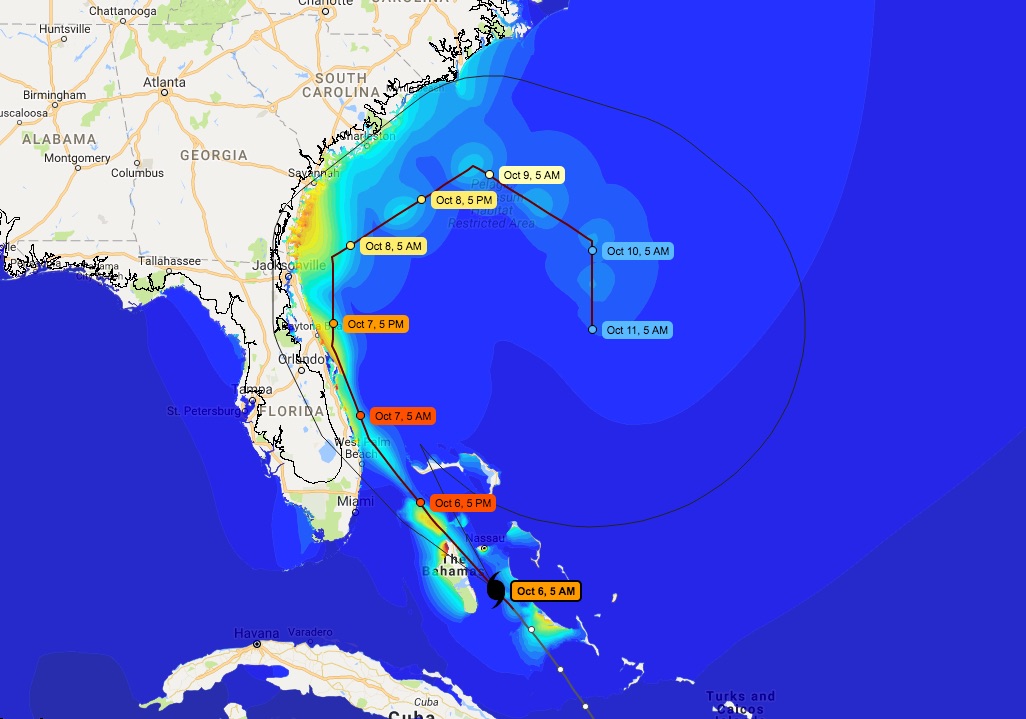
The University of North Carolina at Chapel Hill’s Renaissance Computing Institute (RENCI) and the Department of Homeland Security Coastal Resilience Center of Excellence (CRC) have been recognized in the annual HPCwire Readers’ and Editors’ Choice Awards, presented at the 2016 International Conference for High Performance Computing, Networking, Storage and Analysis (SC16) in Salt Lake City, Utah.
The RENCI/CRC collaboration won Editors’ Choice: Best Use of High-Performance Data Analytics, based on their partnership on ADCIRC, which is used to model storm surge from tropical storms. The partnership is the focus of an HPCwire article written in October, “RENCI/Dell Supercomputer Charts Hurricane Matthew’s Storm Surge.” During Hurricane Matthew, ADCIRC model results were used to predict storm impacts; North Carolina reported more than 20 storm-related deaths, portions of I-95 were closed for more than a week and 31 counties were declared federal disaster areas.
The full list of winners is available on www.HPCwire.com.

The ADCIRC coastal circulation and storm surge model, which applies high performance computing and data analysis to understanding dangerous storm surges, is part of a long-term collaboration involving RENCI, the CRC and the University of North Carolina at Chapel Hill (UNC)’s Institute of Marine Sciences. For more than 20 years, researchers from UNC and others have worked to enhance and improve the model.
Visualizations of the models appeared on the Coastal Emergency Risks Assessment website. Outputs from the model runs are routinely incorporated into guidance information by the National Weather Service, the National Hurricane Center and agencies such as the U.S. Coast Guard, the U.S. Army Corps of Engineers, FEMA and local and regional emergency management divisions. The models can also be used as a tool to help make decisions about evacuations, and where to position supplies and response personnel.
“ADCIRC computes storm surge and flooding with great accuracy, although it takes high-performance computing to do this in a timely enough manner to be relevant for decision-making,” said Dr. Rick Luettich, who is Director of the Institute of Marine Sciences, Lead Principal Investigator of the CRC and Coastal Modeling Domain Scientist at RENCI.
Luettich, one of the principal developers of ADCIRC, emphasized the importance of the partnership between hazard science and high performance computing in the work.
“As scientists, we are grateful for the computing resources at RENCI that help make our data easily usable in emergency situations,” he said. “We also thank HPCWire for recognizing our work and the role of computing and data analytics in understanding and responding to these risks.”
HPCwire is a news and information website covering the fastest computers in the world and the people who run them. The annual HPCwire Readers’ and Editors’ Choice Awards are determined through a nomination and voting process with the global HPCwire community, as well as selections from the HPCwire editors. These awards are revealed each year to kick off the annual supercomputing conference, which showcases high performance computing, networking, storage and data analysis.
“From thought leaders to end users, the HPCwire readership reaches and engages every corner of the high performance computing community,” said Tom Tabor, CEO of Tabor Communications, publisher of HPCwire. “Receiving their recognition signifies community support across the entire HPC space as well as the breadth of industries it serves. We are proud to recognize these efforts and make the voices of our readers heard, and our congratulations go out to all the winners.”
